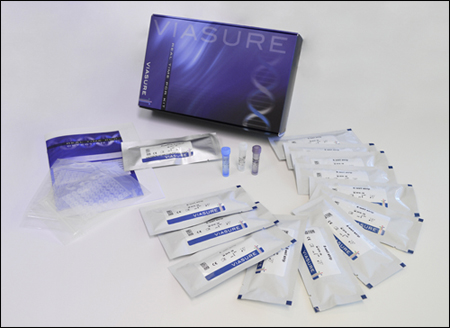
VIASURE Real Time PCR Detection Kits
Pneumocystis jirovecii (q)

Description
VIASURE Pneumocystis jirovecii Real Time PCR Detection Kit is designed for specific identification of Pneumocystis jirovecii in respiratory samples from patients with signs and symptoms of respiratory infection.
This test is intended for use as an aid in the diagnosis of Pneumocystis jirovecii in combination with clinical and epidemiological risk factors.
DNA is extracted from clinical specimens, multiplied using Real Time amplification and detected using specific primers and a fluorescent reporter dye probe for Pneumocystis jirovecii.
Specifications
Information
Pneumocystis jirovecii pneumonia (PCP) is an acute and life-threatening lung disease caused by the fungus Pneumocystis jirovecii. PCP is an important disease of immunocompromised humans, particularly patients with HIV, but also patients with an immune system that is severely suppressed for other reasons. In humans with a normal immune system, it is an extremely common silent infection. In developing regions of the world, the prevalence of PCP was once thought to be much lower, but studies have shown that the lower reported incidence is likely a failure to accurately diagnose.
The symptoms of PCP are nonspecific, in patients with HIV tends to present much later, often after several weeks of symptoms, compared with PCP associated with other immunocompromising conditions. Symptoms of PCP include the following: progressive exertional dyspnea, fever, non-productive cough, chest discomfort, weight loss, chills and hemoptysis (rare).
PCP is difficult to diagnose as a result of the associated nonspecific signs and symptoms. Because P. jirovecii cannot be propagated in culture, microscopic visualization of cysts or trophic forms in pulmonary specimens with cytochemical or immunofluorescent staining with monoclonal antibodies and/or DNA amplification are the standard procedures to detect this microorganism.

